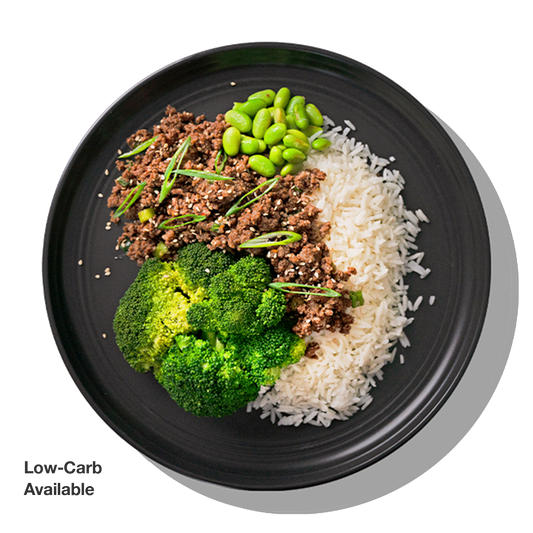By Shoshana Pritzker, RD, CDN, CSSD, CISSN
Are you doing all you can to prevent heart disease?
There’s much more to boosting heart health than hitting the gym most days of the week and limiting your diet. While the American Heart Association estimates that 98% of Americans have modified their eating habits to control their body weight and improve heart health, most people are unsure of whether or not the foods they’re avoiding and/or adopting are really going to make a difference. And since those with a BMI categorized as obese are at a much greater risk of developing heart disease, stroke, high blood pressure, high cholesterol, and type 2 diabetes, losing a few pounds isn’t such a bad idea.
Whether you have weight to lose or not, making positive changes to your nutrition has been shown to improve markers for a healthy heart. Reducing risk factors including high cholesterol, high blood pressure, high blood sugar, and excess body weight is essential to making this happen. Without taking steps to rectify high risk factors, your chances of suffering a stroke or heart attack increase.
Maintaining a Healthy Weight for Heart Health
While it’s true, you can be healthy at a heavier bodyweight; science says being overweight or obese increases your chances of developing certain illness or chronic diseases at some point in your lifetime. So while you may feel healthy in your skin right now, it may not be that way forever. That’s why it’s important to take preventative steps to improve your health and quality of life.
Not sure if you’re overweight or obese? Any easy way to determine your status is to calculate your BMI (body mass index). While BMI is not the end-all-be-all for health status, it can help you understand where you’re at with your own body weight and whether or not it would be beneficial to lose a few pounds.
Finding out your BMI is simple – there are dozens of free BMI calculators found across the Internet. Once you know your BMI, chart it on the following table:
- 4 or less = underweight
- 5 – 24.9 = normal weight
- 25 – 29.9 = overweight
- 30 and over = obese
Don’t forget, muscle takes up space too in the body and can pose a challenge for BMI. If you’re someone who carries a lot of muscle and little body fat, you may still fall into the obese category when you’re clearly not.
7 Ways to Lose Weight and Improve Heart Health
- Pay attention to portions – While filling your plate with nutritious foods is important, portion sizes is more important. That’s because even overdoing healthier foods is not good for your body. Your body has a set point number of calories it needs to thrive each day, and this varies from person to person. Overdo it on those calories and you’re bound to feel sluggish, uncomfortable, and will ultimately gain weight. On the flip side, skimp out on the calories too much and you’ll end up binging later. Focus on finding the right portion for your body size at meals and snacks so you feel full and satisfied without restriction.
- Focus on high fiber carbohydrates, fruits and vegetables – Fiber from complex carbs, fruits and vegetables helps remove bad cholesterol from the body. This is important for preventing buildup in the artery walls. In addition, fruits and veggies are packed with vitamins and minerals, and are low in calories making them excellent additions to a weight management diet.
- Eat more healthy fats and steer clear of saturated fats – Believe it or not, saturated fat is the cause of high cholesterol -- NOT cholesterol. Make it a point to limit or avoid foods high in saturated fat and trans fats. A good rule of thumb is to look for foods with less than 2.5 grams saturated fat per serving on food labels; and when it comes to trans fats, 0 is best or as low as possible. On the other hand, healthy fats (poly- and monounsaturated fatty acids) help improve cholesterol and triglyceride levels. This is important for strengthening the heart and reducing inflammation. Focus on foods rich in healthy fats including nuts and seeds, nut butters, avocado, oils, dairy, and some cheeses.
- Be mindful about stress relief – Stress has an annoying way of wreaking havoc on our lives. And while more research is needed to determine how much of an effect stress has on heart disease, it definitely has an effect on behaviors and factors that increase your risk of heart disease – think overeating, weight gain, high blood pressure, high cholesterol, high blood sugar, smoking and drinking. Those reasons alone should encourage you to make a change. Start by finding ways to relax and relieve stress every day – even 10 minutes is worth your time. Some ideas for stress relief and relaxation include: meditation, take a warm bath, listen to your favorite music, journaling, reading, get out in nature, go for a bike ride, exercise, practice deep breathing, spend time with friends or loved ones, or anything that simply makes you happy.
- Exercise regularly – The relationship between physical exercise and heart health has been studied at length. The consensus in the scientific community is that participating in any kind of exercise, most days, will strengthen the heart and reduce your risk of heart disease – specifically by improving blood sugar control, reducing bad cholesterol in the body, reducing body fat, reducing blood pressure, increasing good cholesterol, and improvements in insulin sensitivity. Choose activities that you enjoy, because if you like it, you’re more likely to do it.
- Quit smoking – Chronically breathing in cigarette smoke can cause permanent damage to your heart and blood vessels making it difficult for your heart to get access to the oxygen levels it needs. Plus, smoking cigarettes causes a waxy buildup and blockages in the arteries – this can create blood clots and ultimately lead to heart attack, stroke and even death. If you’re a smoker, consult with your doctor and enlist help with quitting to improve your long-term health risk.
- Drink alcohol in moderation – Moderate consumption of alcohol means an average of 1-2 drinks per day for men and one for women. Drinking too much alcohol increases your risk for high blood pressure, obesity, stroke, alcoholism, liver disease, and the list goes on. Specifically, too much alcohol causes triglycerides and bad cholesterol to increase in the bloodstream – over time this leads to buildup and blockages in artery walls increasing your chances of a heart attack or stroke. Focus on limiting alcohol intake to the recommended 1-2 servings per day or less. Try having a glass of water between drinks, or make a goal to reduce the amount you’re drinking each week until you reach 0-2 per day.
Not sure where to start with making changes to your diet and routine? The American Heart Association has made it easy for consumers by providing a seal of approval so to speak to food manufacturers and companies whose products meet certain criteria for heart healthy food. Look for the heart with a check in the center on food labels and websites before purchasing!
Looking for an even easier way to incorporate heart healthy foods into your diet? Check out these American Heart Association approved heart healthy meals– Low Carbs Bro, Basics Meals, & Bro Science and have them delivered to your door fast!








